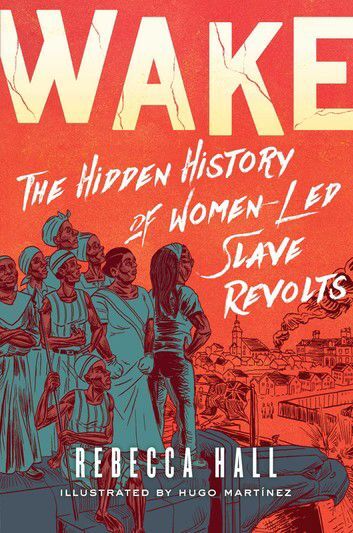Book review: ‘Wake’
Published 12:00 am Sunday, June 20, 2021

- BOOK REVIEW
“Wake: The Hidden History of Women-Led Slave Revolts” by Rebecca Hall, illustrated by Hugo Martínez. New York: Simon & Schuster, 2021. 208 pages, $29.99 (hardcover).
This graphic novel switches between Dr. Rebecca Hall’s journey into her research, the prejudice and discrimination she faced, her own family history and story and then the stories she was researching. Hall discovered that there were many women who planned and led slave revolts on the slave ships during the Middle Passage, the journey across the sea. Those women and others continued to fight their enslavers throughout the Americas, and then their stories were buried, erased or forgotten.
Trending
“Wake” is the story of Hall, who is a granddaughter of slaves, discovering these stories as she is haunted by that history. As much of history tends to try and tell us, we have been told that enslaved women did not participate or did very little in slave revolts. But as Hall decided to take a deeper look, through old court records, slave ship captain’s logs, letters and bones, she has found that women were warriors everywhere. With her own in-depth archival research, and some historical imagination, Hall constructs pasts that could have been those of Adono and Alele, women who rebelled on a slave ship during the Middle Passage, and also shows us a slave revolt in colonial New York. Then we see Hall’s time as an attorney and as a historian trying to find the answers to these questions.
Even though I have a history degree, I had never heard these stories, or any like them. I specifically took a Civil War class in college and have read quite a bit on it besides. There is a diagram that we often see that shows how slaves were packed into ships for the journey across the sea, and Hall shows it to us here as well. This book was the first time I had ever learned that the women were actually brought onto the deck and unchained – even near the weapons. It is amazing the things that have been left out or intentionally disregarded in our history, and that is an incredibly powerful lesson in and of itself that we need to take note of.
I generally would not read graphic novels but was intrigued when I saw this. It is very educational, and I think it’s a great way to reach an audience of any age, but especially those who are younger. It was a very quick read, and that will make it even more appealing to those who are interested but not willing to read a historical novel (though I would love one on the topic). Because it was all in black and white, I did sometimes have trouble with distinguishing items in the pictures. I think this made it harder on my eyes as I progressed through the story. The font itself changed size, and sometimes was so small or there was so much of it in a small space that it was hard to read (I wear glasses, but even still – it can be hard).
One of my favorite things that Hall and the illustrator, Hugo Martínez, show is that when researching history, even more so when it is a topic so personally close to you, it can hurt to find out the things that you uncover and learn. That makes it all the more important to share and write about, as I see that so many of us had no idea of the stories that Hall has shared with us here, and I wonder how many more were buried and how many more we will never know because it was either deemed too unimportant to be written down in the first place, was lost to history, destroyed or purposefully hidden. We see Hall crying as she reads about small children and women being abused on these ships, as people are captured and taken, and we see how that history affects her – not just as she learns about her past, but as that history has shaped her current world.
This is what we need more of – of learning about our history, of opening ourselves to others and understanding that journey and the cost and truth of where we are at today. I thank Hall for sharing this with us, and for her work for others. In this work, Hall shows us many truths about slavery that need to be addressed, but she also gives back a voice to those who had been buried in history, and honors her own story, journey and fight.
Hall is a scholar, activist and educator. She writes and publishes on the history of race, gender, law and resistance as well as articles on climate justice and intersectional feminist theory. She is working on a collection of essays on the history of “racialized gender” in developing chattel slavery in America, and how this shapes our constructs of race and gender to this day. You can find out more about her at RebHallPhD.org.
Trending
– Reviewed by Fallon Willoughby, first-year experience instructor, Southcentral Kentucky Community & Technical College.






